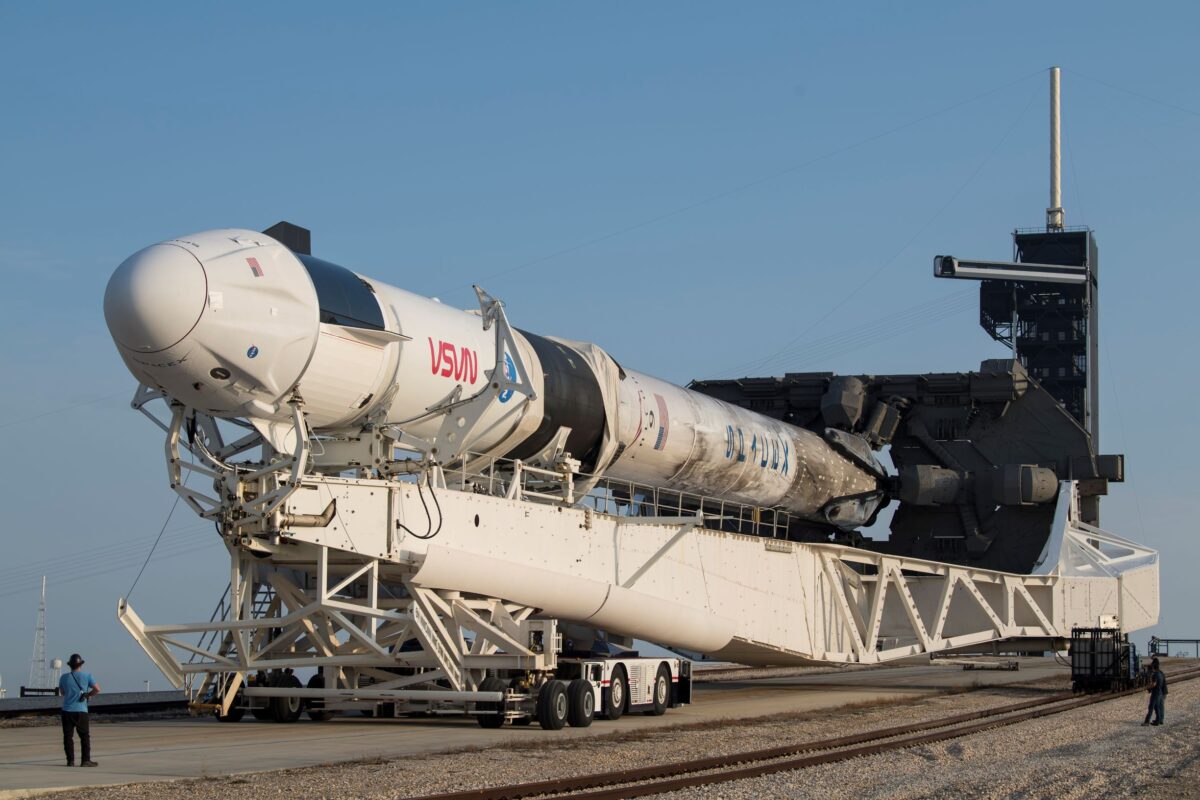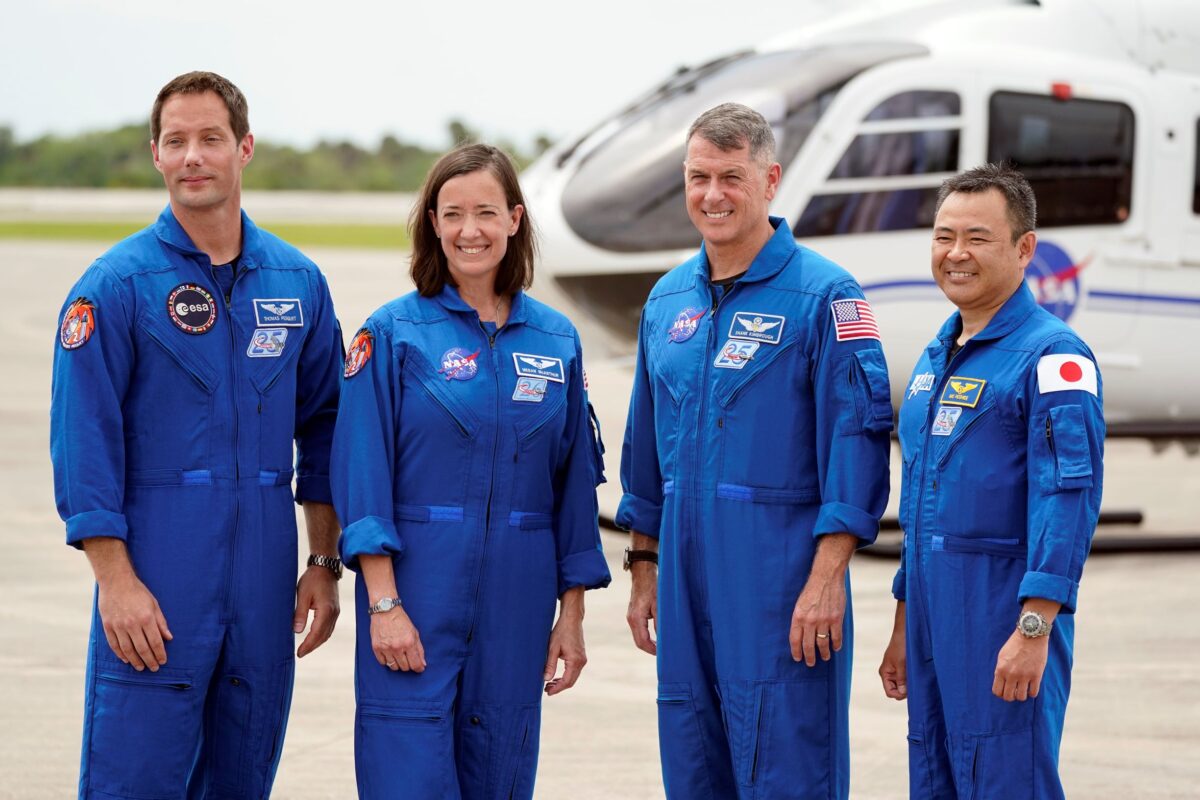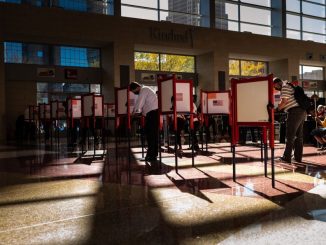
CAPE CANAVERAL, Fla.—For the first time, NASA is putting its trust in a recycled SpaceX rocket and capsule for a crew.
Astronaut Megan McArthur takes special pleasure in the reused spacecraft set to soar Thursday morning. In “a fun twist,” she’ll sit in the same seat in the same capsule as her husband, Bob Behnken, did last spring for a test flight to the International Space Station.
“It’s kind of a fun thing that we can share. I can see him and say, ‘Hey, can you hand over the keys. I’m ready now to go,’” she said in a recent interview with The Associated Press.
While their 7-year-old son, Theo, is becoming a pro at parent launches, McArthur said “he’s not super excited” about her being gone for six months. That’s how long she and her three crewmates will spend at the space station.
This will be SpaceX’s third crew flight for NASA from Florida’s Kennedy Space Center in under a year. The commercial flights ended the U.S.’s reliance on Russian rockets launched from Kazakhstan to get astronauts to and from the space station after the shuttles retired.
SpaceX’s Benji Reed noted Tuesday the private company already has put six people in space—as many as NASA’s Project Mercury did back in the early 1960s when it launched the first Americans. The upcoming flight will boost that number to 10.

Some highlights of the SpaceX flight:
Use, Recycle, Repeat
Both the Dragon capsule and Falcon rocket for this mission have soared once before. The capsule launched the first SpaceX crew last May, while the rocket hoisted the second set of astronauts, who are still at the space station. For SpaceX, recycling is key to space exploration, Reed said, lowering costs, increasing flights and destinations, and allowing more kinds of people to jump on board. Each capsule is designed to launch at least five times with a crew. SpaceX and NASA are assessing how many times a Falcon can safely launch astronauts. For satellites, Falcons can be used for 10 flights. The company uses the same kind of rocket and similar capsules for station supply runs, and recycles those, too.
US-French-Japanese Crew
This is the most internationally diverse crew yet for SpaceX. NASA astronaut Shane Kimbrough, a retired Army colonel, is the spacecraft commander, with McArthur, an oceanographer, as his pilot. Thomas Pesquet, a former Air France pilot, is representing the European Space Agency. Engineer Akihiko Hoshide has worked for the Japanese Space Agency for nearly 30 years and helped build the space station. All but McArthur have already visited the 260-mile-high (420-kilometer-high) outpost. But she’s ventured 100 miles (160 kilometers) higher on the space shuttle, taking part in NASA’s final Hubble Space Telescope mission in 2009. The four have started a new recycled-rocket tradition for SpaceX crews, writing their initials in the soot of their booster.

Bon Appetit
With French and Japanese astronauts flying together, dining promises to reach new heights. Hoshide is taking up curry and rice, as well as canned fish and yakitori—grilled and skewered chicken—but no sushi. Pesquet had a Michelin-starred chef whip up some French delicacies: beef with red wine and mushroom sauce, truffled potato and onion tart, and almond tart with caramelized pears. There are also Crepes Suzette. Pesquet said last weekend he had “some national pressure” to fly French cuisine. His crewmates also had high expectations: “OK, we’re flying with a Frenchman, it better be good.”
Coming & Going
Five days after this crew’s arrival at the space station, the one Japanese and three U.S. astronauts who have been up there since November will strap into their SpaceX capsule to come home. NASA wants some time in orbit between the two crews, so the newcomers can benefit from their colleagues’ experience up there. SpaceX is targeting an April 28 splashdown in the Gulf of Mexico off the coast of Tallahassee, Florida. The company already is conferring with the Coast Guard to prevent pleasure boats from swarming the area like they did for the first SpaceX crew’s splashdown in August. More Coast Guard ships will be on patrol this time.
Space ‘Sexy’ Again
As France’s Pesquet sees it, the U.S. and European space agencies may be cool, but SpaceX is even cooler. “They’ve done a really good job, I think, making human spaceflight sexy again. Sometimes people don’t like me saying that, but that’s kind of the truth. And it’s not that easy,” he told the AP in a recent interview. Take the white-with-black-trim SpaceX spacesuits, which are color-coordinated with the rocket, capsule, and gull-winged Teslas used to transport astronauts to the launch pad. Looking good is important for SpaceX, Pesquet noted, and “it’s a reasonable price to pay” to get the public enthusiastic about space travel.
By Marcia Dunn






Be the first to comment